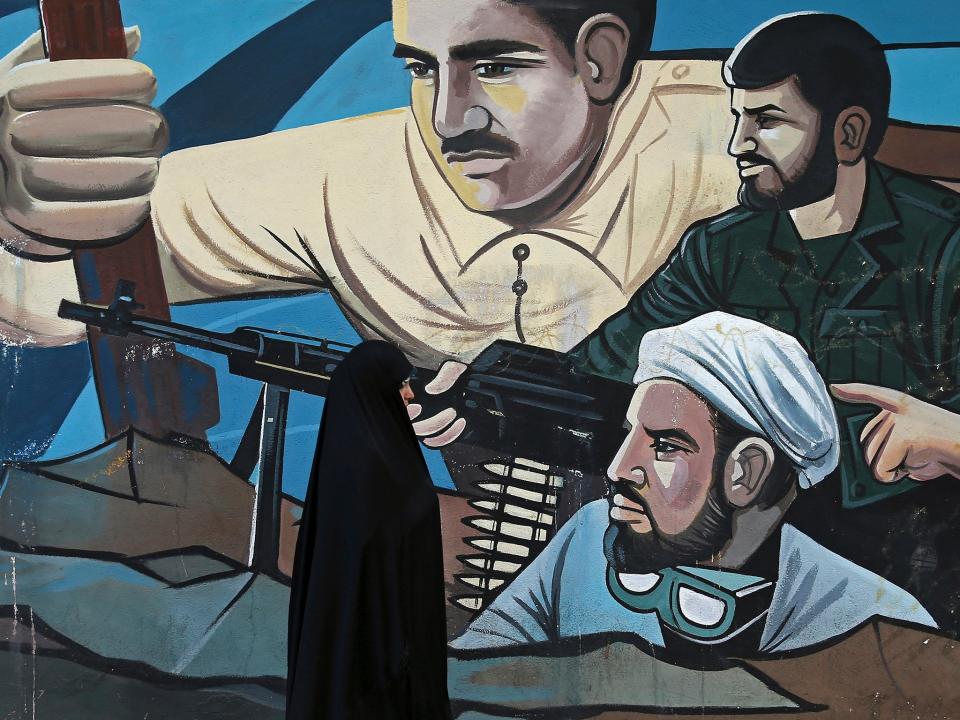‘Trump has another thing coming if he wants to act against Iran’ warns head of feared Revolutionary Guard Corps unit

The head of the Iranian Revolutionary Guard Corps’ powerful Basij militia has dismissed the latest threats against the Islamic Republic from Donald Trump as “psychological warfare”.
“America wants nothing less than to destroy Iran,” Gholamhossein Gheybparvar told Iranian news agency Isna on Monday. Referring to “this crazy president” he said Mr Trump “has another thing coming if he thinks he can act against Iran”. He added: “We will never abandon our revolutionary beliefs ... and both the people and armed forces will stand firm in the face of enemies.”
The comments come in the wake of a new war of words between the US leader and his Iranian counterpart, Hassan Rouhani.
Mr Trump used upper case to tweet a warning: “NEVER, EVER THREATEN THE UNITED STATES AGAIN OR YOU WILL SUFFER CONSEQUENCES THE LIKES OF WHICH FEW THROUGHOUT HISTORY HAVE EVER SUFFERED BEFORE”.
He added: “WE ARE NO LONGER A COUNTRY THAT WILL STAND FOR YOUR DEMENTED WORDS OF VIOLENCE & DEATH. BE CAUTIOUS!”.
The unprecedented threat came after Mr Rouhani used a speech earlier in the day to refer to Mr Trump’s aggressive anti-Iran policies, telling him “not to play with the lion’s tail”.
Mr Rouhani also said any conflict with Iran could lead to the “mother of all wars”.
Those remarks, in turn, came after US secretary of state Mike Pompeo told Iranian-Americans at an address in California that the US stood with Iranians currently protesting against their country’s ruling elite, which he called a “mafia” that was “heartlessly repressing its own people’s human rights, dignity and fundamental freedoms”.
Relations between Tehran and Washington DC have reached new lows since May, when Mr Trump fulfilled an election campaign promise to pull out of the 2016 nuclear deal between Iran and world powers.
The White House has since announced it will increase sanctions designed to deter Iran from pursuing any nuclear weapon ambitions.
Despite the escalating rhetoric, analysts believe military confrontation between the two countries is highly unlikely.
US officials told Reuters the ongoing “communications offensive” from the Trump administration is designed, along with economic pressure, to force Iran into ending its nuclear programme altogether and dropping its support for militia groups in Lebanon, Syria and Yemen.

 Yahoo News
Yahoo News 